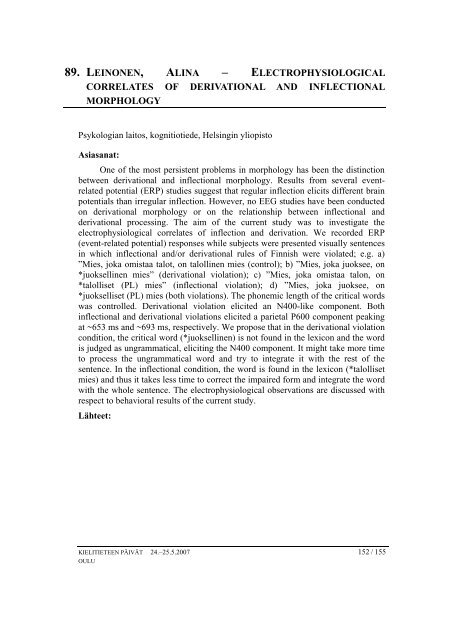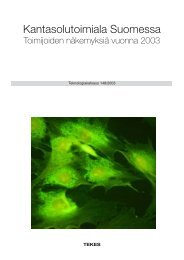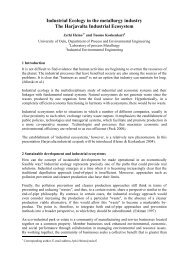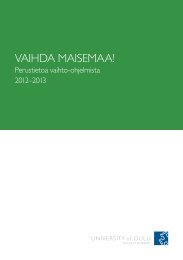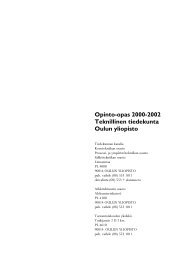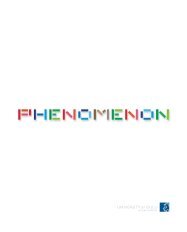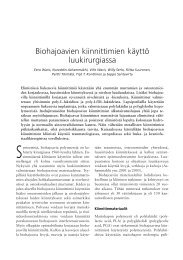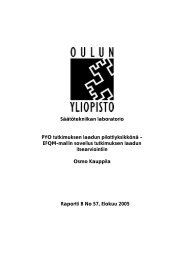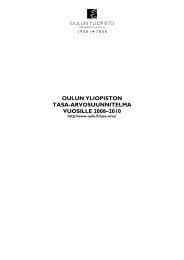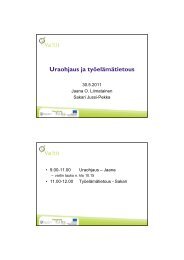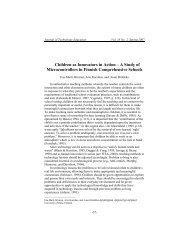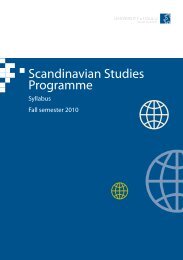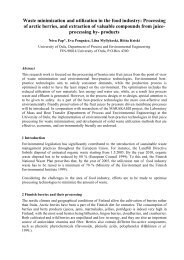Abstraktit - Oulu
Abstraktit - Oulu
Abstraktit - Oulu
You also want an ePaper? Increase the reach of your titles
YUMPU automatically turns print PDFs into web optimized ePapers that Google loves.
89. LEINONEN, ALINA – ELECTROPHYSIOLOGICAL<br />
CORRELATES OF DERIVATIONAL AND INFLECTIONAL<br />
MORPHOLOGY<br />
Psykologian laitos, kognitiotiede, Helsingin yliopisto<br />
Asiasanat:<br />
One of the most persistent problems in morphology has been the distinction<br />
between derivational and inflectional morphology. Results from several eventrelated<br />
potential (ERP) studies suggest that regular inflection elicits different brain<br />
potentials than irregular inflection. However, no EEG studies have been conducted<br />
on derivational morphology or on the relationship between inflectional and<br />
derivational processing. The aim of the current study was to investigate the<br />
electrophysiological correlates of inflection and derivation. We recorded ERP<br />
(event-related potential) responses while subjects were presented visually sentences<br />
in which inflectional and/or derivational rules of Finnish were violated; e.g. a)<br />
”Mies, joka omistaa talot, on talollinen mies (control); b) ”Mies, joka juoksee, on<br />
*juoksellinen mies” (derivational violation); c) ”Mies, joka omistaa talon, on<br />
*talolliset (PL) mies” (inflectional violation); d) ”Mies, joka juoksee, on<br />
*juokselliset (PL) mies (both violations). The phonemic length of the critical words<br />
was controlled. Derivational violation elicited an N400-like component. Both<br />
inflectional and derivational violations elicited a parietal P600 component peaking<br />
at ~653 ms and ~693 ms, respectively. We propose that in the derivational violation<br />
condition, the critical word (*juoksellinen) is not found in the lexicon and the word<br />
is judged as ungrammatical, eliciting the N400 component. It might take more time<br />
to process the ungrammatical word and try to integrate it with the rest of the<br />
sentence. In the inflectional condition, the word is found in the lexicon (*talolliset<br />
mies) and thus it takes less time to correct the impaired form and integrate the word<br />
with the whole sentence. The electrophysiological observations are discussed with<br />
respect to behavioral results of the current study.<br />
Lähteet:<br />
KIELITIETEEN PÄIVÄT 24.–25.5.2007 152 / 155<br />
OULU


